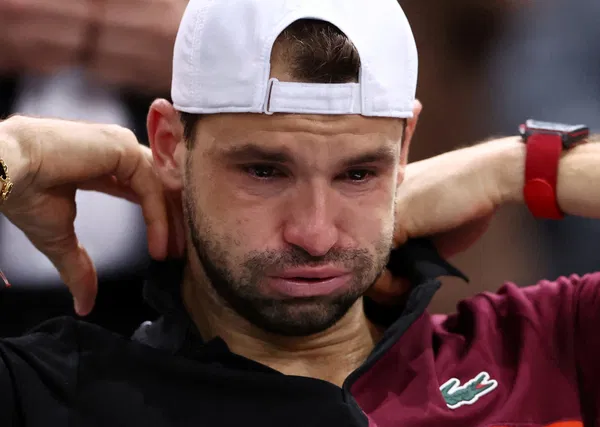Grigor Dimitrov recently opened up about his struggles with anxiety and mental challenges during his tennis career, shedding light on one of the most difficult phases of his life. He described how the COVID-19 pandemic and his personal health battles, including contracting the virus, significantly affected his mental and physical state.

Dimitrov explained that when he tested positive for COVID-19, it led to severe anxiety as he feared for the health of those around him, including family and fans. This period forced him to reassess his career and life, recognizing how fragile health can be, and leading him to realize the need to embrace every moment and opportunity moving forward.
Dimitrov admitted that the recovery process was not easy. It took time for him to regain his rhythm both on and off the court. He emphasized how the pandemic forced him to slow down and appreciate the small things in life, like spending time with family or even just enjoying a simple coffee. This shift in mindset was crucial for his recovery, as it helped him regain his competitive spirit without succumbing to pressure or regret for past mistakes.
Reflecting on his career, Dimitrov spoke candidly about the many opportunities he missed, but he refuses to feel sorry for himself. He now focuses on controlling his attitude, both in tennis and life, aiming to win or lose on his own terms. This acceptance of his past, mistakes included, has allowed him to find peace and continue pushing forward with resilience. His recent form in tournaments demonstrates how this mental shift is helping him on the court.
Dimitrov’s message is particularly relevant to athletes who face similar struggles with mental health. He made an emotional plea, urging athletes to take care of their mental well-being as much as their physical health, especially in a high-pressure sport like tennis where fine margins can make or break a career. His openness about anxiety and personal setbacks reflects a broader movement among athletes to speak out about mental health challenges, breaking the stigma that often surrounds these issues.

Now in a reflective stage of his career, Dimitrov acknowledges that his playing days will not last forever, but he looks forward to life after tennis. He has already begun laying the groundwork for future ventures, such as his philanthropic endeavors. Dimitrov’s story is one of resilience, self-awareness, and growth, and his message resonates with athletes and fans alike who are navigating the complexities of life both on and off the court.



